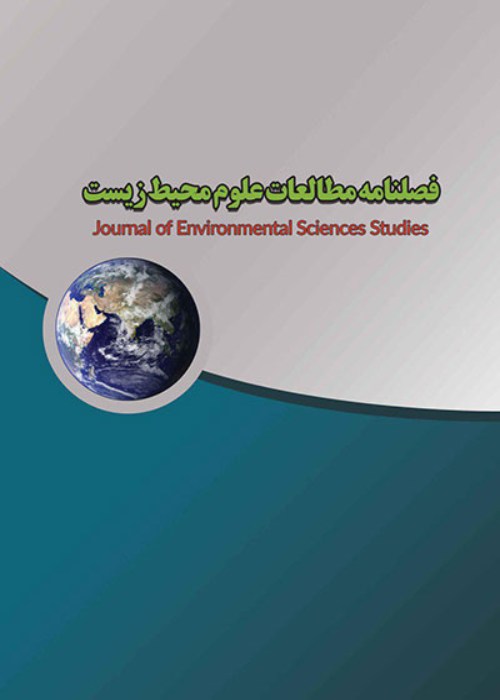Green Rural Tourism: Investigating the Factors Influencing the Development of Sustainable and Environmentally Preserver Rural Tourism
The development of sustainable rural tourism is known as a desirable goal in the development of sustainable tourism due to the addition of the concept of sustainability to rural tourism. But this sustainable development can have negative effects on the environment. For this reason, it is necessary to look at this category with a comprehensive and inclusive perspective. The development of rural tourism is very important for rural areas, because it can help solve economic and social problems, which in turn helps to maintain the local population in permanent places of residence and, as a result, improve. For a long time, rural tourism has been considered to have unique advantages in helping rural areas to get rid of poverty, attracting surplus rural labor, inheriting the culture of rural characteristics, optimizing the rural industrial structure and improving facilities, etc. This category is because rural tourism and related concepts have a wide perspective and scope. In recent years, the rapid development of rural tourism has caused researchers to pay more attention to it and conduct a large number of scientific studies and researches in this field. The increase in tourism activities in rural areas causes the weather, the land to be increasingly at risk of pollution due to the creation of tourism infrastructure and facilities, as well as the damage caused by tourism business activities that meet the needs of tourists. The development of rural tourism inevitably has negative effects on the destination's environment and resources, such as overcrowding, water pollution, waste production, and vegetation destruction. The question of how to reduce the conflict between environmental sustainability and local economic interests has become an important issue in the development of rural tourism. However, the environment and natural resources are essential for the development of rural tourism. In fact, both ignorance and obvious disregard for environmental protection seriously weaken the attractiveness of destinations. Improving and preserving the natural environment and ecosystem is useful for maintaining the competitiveness of rural tourism destinations and achieving sustainable development of rural tourism. It must rely on the joint efforts of residents and tourists. Many studies have investigated how to encourage residents to show environmentally responsible behaviors and green consumption of tourists. In rural tourism, local residents play an essential role in preserving the environment because their behavior and daily activities directly affect the ecological integrity of the destination. The main goal of this research is to investigate the factors influencing the development of sustainable and environmentally preserver rural tourism.
In terms of the basical purpose and the research method used in this research, the qualitative method is the foundational data theory. This type of research is in search of discovering facts and realities and knowledge of phenomena and objects, which expand the boundaries of general human knowledge and discover scientific laws and explain the characteristics and attributes of a reality. In the system of elements of sustainable development of rural tourism, the factors are interdependent, mutual and corresponding. Thematic research of sustainable development not only requires the good performance of one factor, but also the compatibility between factors. In addition, disruption in any factor may lead to weakening or even failure of the entire rural tourism system. Only by explaining the logical relationship and hierarchical context between the factors can one understand the working mechanism of the rural tourism system and have a deeper understanding of the various problems facing sustainable development. As a result, the coordination and corresponding relationship between the factors can be adjusted to achieve the goal of sustainable rural tourism development. Therefore, it is necessary to use qualitative methods such as foundational data theory to examine the conceptual link of these elements. In this research, using purposive sampling, experts in the field of rural management and planning, tourism, environmental management have been used as participants in semi-structured interviews.
According to the findings of the research, the codings were done using the systematic approach of Strauss and Corbin, and finally, 122 preliminary propositions were extracted. Following an inductive approach (moving from part to whole), the statements extracted were categorized into 83 open codes, 49 axial codes, and 20 selective codes. From the results of the present research, it can be pointed out the effective role of each of the influential factors in the development of sustainable rural tourism and environmental protection, which are presented in the form of the concept of green rural tourism. In fact, green rural tourism can protect the environment while developing sustainable rural tourism, and it is expected that the components of this type of tourism can include sustainable and responsible tourism approaches and create an effective discourse strategy.According to the findings of the research, the codings were done using the systematic approach of Strauss and Corbin, and finally, 122 preliminary propositions were extracted. Following an inductive approach (moving from part to whole), the statements extracted were categorized into 83 open codes, 49 axial codes, and 20 selective codes. From the results of the present research, it can be pointed out the effective role of each of the influential factors in the development of sustainable rural tourism and environmental protection, which are presented in the form of the concept of green rural tourism. In fact, green rural tourism can protect the environment while developing sustainable rural tourism, and it is expected that the components of this type of tourism can include sustainable and responsible tourism approaches and create an effective discourse strategy.According to the findings of the research, the codings were done using the systematic approach of Strauss and Corbin, and finally, 122 preliminary propositions were extracted. Following an inductive approach (moving from part to whole), the statements extracted were categorized into 83 open codes, 49 axial codes, and 20 selective codes. From the results of the present research, it can be pointed out the effective role of each of the influential factors in the development of sustainable rural tourism and environmental protection, which are presented in the form of the concept of green rural tourism. In fact, green rural tourism can protect the environment while developing sustainable rural tourism, and it is expected that the components of this type of tourism can include sustainable and responsible tourism approaches and create an effective discourse strategy.
- حق عضویت دریافتی صرف حمایت از نشریات عضو و نگهداری، تکمیل و توسعه مگیران میشود.
- پرداخت حق اشتراک و دانلود مقالات اجازه بازنشر آن در سایر رسانههای چاپی و دیجیتال را به کاربر نمیدهد.



